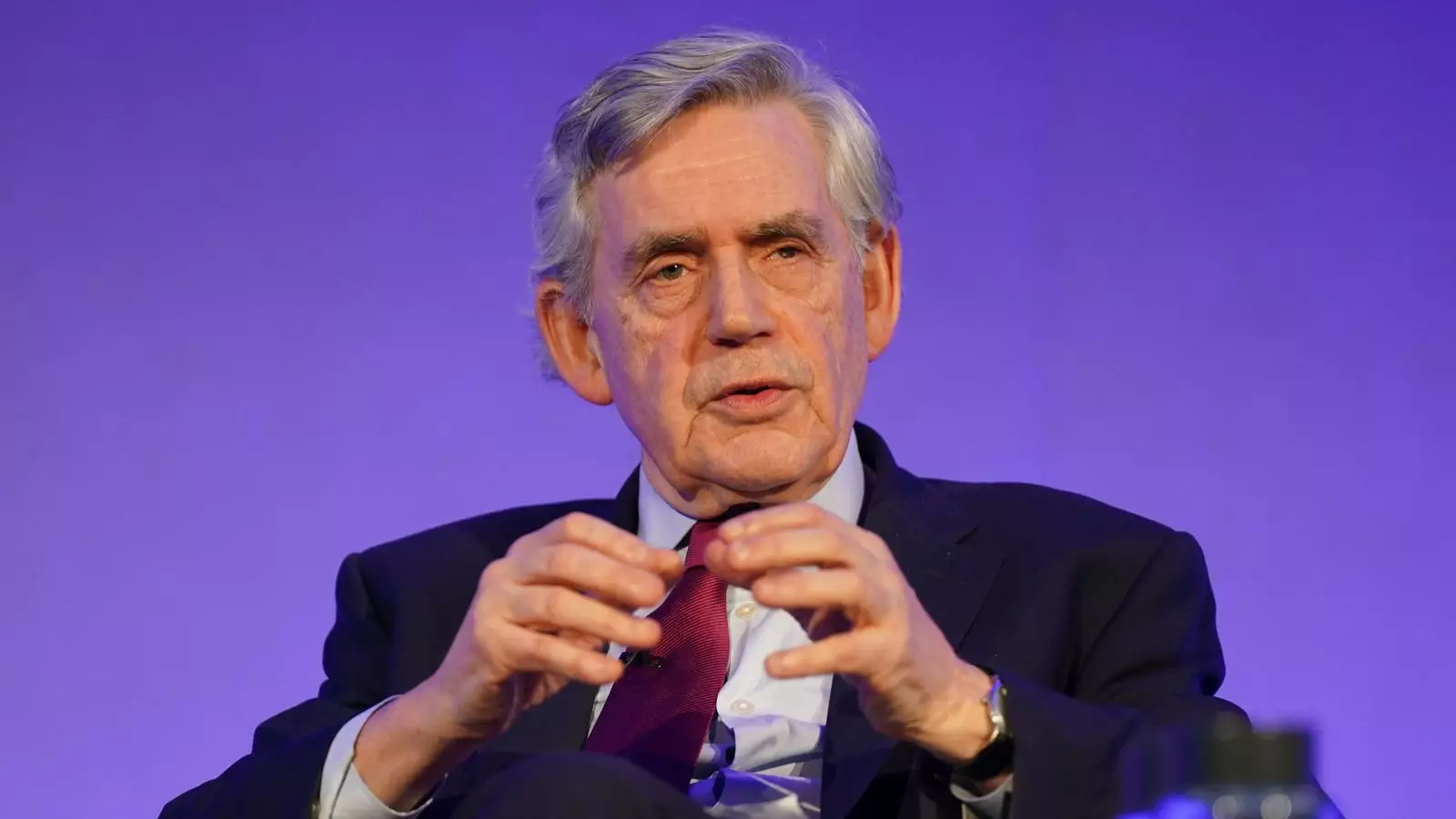In today’s tumultuous political landscape, the intersection between welfare policy and economic realities has once again ignited a fiery debate. Central to this discourse is the ongoing discussion about winter fuel payments for pensioners—a lifeline that has been manipulated by political machinations for far too long. Former Prime Minister Gordon Brown recently weighed in on this contentious topic, advocating for a more equitable approach that respects the dignity of pensioners. His argument resonates because it underscores a basic tenet of governance: fairness.
Brown’s assertion, while noteworthy, invites deeper scrutiny. Excluding people on the top rate of income tax from winter fuel payments might seem like a responsible move, but it does not go far enough to address the underlying issues that push vulnerable groups toward the brink of poverty. By merely suggesting cuts for the wealthy, we risk masking the broader systemic injustices that still pressure middle and lower-income pensioners. The absolute poverty these individuals face as they age should not simply be a byproduct of budgetary concerns; it should be a rallying point for comprehensive change.
Economic Recovery Must Include Everyone
Keir Starmer’s shifting stance—welcome as it is—manifests more than just a political recalibration; it signals an awareness that a prosperous economy ought to be inclusive of all citizens, particularly those who have contributed significantly to society over their lifetimes. It is not merely about cushioning the cost of living; it is about guaranteeing that the very fabric of social security remains intact amidst fluctuating economic conditions. Almost poetic in its irony, the Labour Party found itself at the crossroads of its rich history of championing social justice when it opted for means-testing, leading to an Ecclesiastes moment: the need for change is both timely and timeless.
For many pensioners, the winter fuel payment has become more than just fiscal support—it epitomizes a commitment to societal equity. The decision to opt for means-testing reduced eligibility from 11.4 million to just 1.5 million pensioners, leaving millions unaware of whether they deserved support or if they were being judged against a socio-economic yardstick. This constriction not only stings financially but also undermines the ethos of hard work and dedication to duty that defines our senior citizens. Those who have toiled diligently throughout their lives should not feel the bitter taste of exclusion.
Pandering to Political Pressure
After a significant political backlash from Labour MPs, Starmer’s retrospective acknowledgment of the need for a more inclusive winter fuel payment policy highlights a worrisome trend in contemporary governance—decisions too often swayed not by principle, but by electoral feedback. Instead of setting the political agenda based on ethical frameworks or social responsibilities, leaders appear reactive rather than proactive. Such a response introduces an unsettling fluidity to political promises, which should ideally be anchored in a strong moral compass.
The truth remains that the minimum gross income threshold for pensioners to qualify for winter fuel payments, which currently sits at £11,500, needs a hard factual reevaluation. Raising this threshold seems like an obvious solution, yet it reads more like a half-hearted attempt to placate dissent rather than a genuine commitment to welfare reform. If we are going to profess a commitment to age-related financial security, we must dive deeper into a consistent and holistic overhaul of welfare systems.
In this environment of uncertainty, fostering meaningful dialogue around pensions and welfare is imperative. Falling short of this can lead to more pronounced social divides, so it is essential to break the mold of conventional political wisdom by prioritizing authentic discourse over popularity.
The Labour Party has always professed to hold the needs and rights of vulnerable populations at the forefront of its platform. Yet, these well-intentioned ideals face a threat from outdated thinking and a hyper-focus on fiscal responsibility devoid of compassion. As everyday citizens, we must demand more from our leaders—fair policies that leave no one behind and ensure that those who have sacrificed so much can live their golden years in dignity. Politicians must recognize that real economic advancements ensure everyone, not just the affluent, can bask in the warmth of prosperity.


Leave a Reply